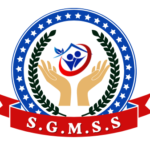Background of the organization

Saraswati Gyan Mandir Shiksha Samiti, the applicant organization, was established at district Shahjahanpur in the year 2000-2001 as a society incorporated under the Indian Societies Registration Act 1860. It is being managed by a dedicated team of social activists and volunteers with the objectives of meeting the socio-economic developmental needs of the deprived and poorer sections of the society particularly in rural areas. Ever since its inception it has been involved in carrying out various developmental programmes most of which have been funded by various departments of the government both at the Centre and the State (U.P). The areas of developmental activities include programmes for women and child welfare, training and employment oriented programmes for women and youths with emphasis on minorities and backward castes, health care, cottage and handicraft development, programmes for sustainable agriculture, survey, studies and campaigns for holistic development of rural areas and non-formal education to school dropouts and non-school going children so that they are able to join the mainstream of development.
Our Vision

We are committed to the dissemination of information and promotion of sustainable development initiatives, in response to the needs of under represented and marginalized sectors of society. For bridging the data gap and improving information availability we are committed to develop and establish an ideal medium for the Participation and exchange of a trusted and accurate source of quality information.
As a catalyst to bring changes in the lives of millions of children, youth and women, who are not privileged, by addressing the real need at the grassroots level and also enabling the civil society across the world to engage proactively in the change process following the philosophy of Civic Driven Change and adopting the highest standard of governance and thereby emerging as a leading knowledge and technology driven, innovative and scalable international development organization from India.
Our Mission

We are committed to social justice, sustainable development and human rights. The right to communicate freely is a basic human right and a necessity for sustainable development. Access to information is essential to informed decision-making at all levels.
Our Goals

The society has the main objective to work for the overall development of the poor, downtrodden and disadvantaged sections of people without any discrimination of castes, creed and religion so that the targeted beneficiaries join together, generate a fellow feeling, work together and devote themselves positively for mutual development and the overall development of the society.
Specific objectives of the organization
- To empower women by developing their social, mental, educational and intellectual capabilities.
To organize women artisans of the deprived community and work for their economic and social development and removal of imbalances at all possible levels.
To promote health and sanitation facilities in rural and urban areas focusing on women and children and their nutrition level in coordination with local health administration and other development organizations.
- To provide facilities for better training, networking and institutional support and motivate them to contest elections and bring about gender equity in local self-governance,
- To lay emphasis on literacy and education and open up avenues so that they are able to catch up with the literate sections and are not deprived of the fruits of economic development.
- To encourage handicrafts, khadi and related village-level cottage work where manpower is involved and persuade the rural folks to engage in the same.
- To work for the welfare of the handicapped and disabled persons and help them.
- To provide facilities of heath-care services and work for the eradication of communicable diseases and life threatening diseases in the lower stata of the society particularly in rural areas.
- To create awareness on environmental issues and educate the public and industrial units and others for the prevention and control of pollution to land, air and water.
- To create general awareness about common cause, sensitize people about legal rights and remedies and encourage them to organize themselves and obtain legal remedies through public interest litigation and advocacy.
- To develop a culture of humanism through promotion of social equity and justice.
Systems in place for technical and financial management

The organization’s infrastructural setup is very strong for implementing developmental programmes successfully. The affairs of the Society are being run by a board consisting of 09 members. The office bearers are the President¸ Vice President, Manager & Treasurer and the remaining 05 are committee members. The board meets regularly on quarterly basis. The board members, besides playing advisory role in the organization, are also involved with thematic areas of the organization.
The board passes necessary resolution before submitting programmes and projects for approval to the donor departments/agencies. In matters of recruitment and appointments, procurement of equipments and materials and monitoring financial and programme matters the board exercises necessary control, supervision and direction for achieving optimum results.
Geographical areas covered

As far as the geographical spread of the organization’s activities is concerned, the organization is actively working in the district Shahjahanpur, Sitapur, Lakhimpur Kheri & Hardoi of the State of Uttar Pradesh. It has taken up various developmental programmes for providing income generation activities, handicraft development/ capacity-building trainings, and activities to develop education, agriculture, women empowerment and health. It is a matter of credit for the organization that its activities through various programmes have reached more than a lakh people particularly of the weaker sections of the rural and urban areas and made commendable changes in their living conditions. This has been made possible by the community-led development programmes and networking of NGOs working in the related areas by the organization.
